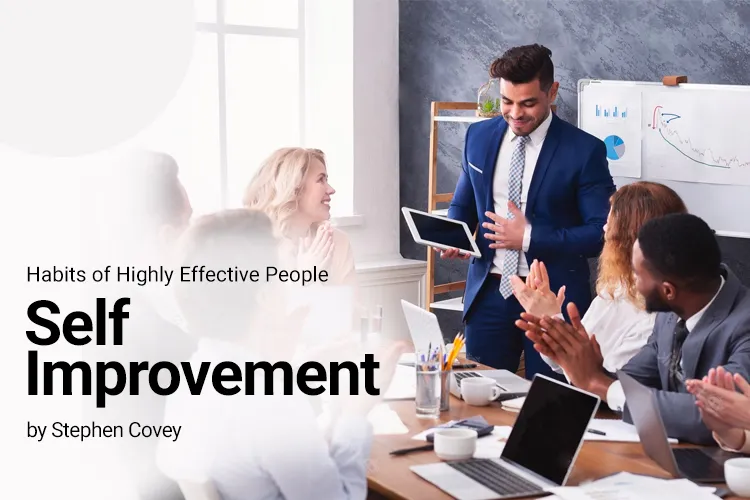Habits of Highly Effective People – Self Improvement by Stephen Covey

In a world that’s constantly evolving, it’s essential to keep up with the changes and strive for personal growth. We all want to live a meaningful and fulfilling life, but it’s not always easy to know where to start or how to make progress. Whether you’re looking to boost your productivity, enhance your communication skills, or cultivate better habits, you’ll find practical tips and inspiration here. But this blog isn’t just about personal development. It’s also about learning from highly effective people who have achieved great success in their lives. We’ll be exploring the habits, mindset, and principles that have helped these individuals excel in their respective fields.
Stephen Covey’s book “The 7 Habits of Highly Effective People” has become a classic in the field of personal development. The book has helped millions of people around the world to become more productive, fulfilled, and successful in their personal and professional lives. In this blog, we will explore the seven habits presented in Covey’s book and how they can be applied to our daily lives.
Be Proactive
The first habit Covey presents is to be proactive. This means taking responsibility for your life and your actions, rather than waiting for things to happen to you. To be proactive, you must focus on what you can control, rather than what you can’t. By taking action, you can create positive outcomes in your life.
Begin With the End in Mind
The second habit Covey presents is to begin with the end in mind. This means defining your own vision of success and working towards it in a focused and intentional way. When you have a clear vision of what you want to achieve, you can create a plan to get there.
Put First Things First
The third habit Covey presents is to put first things first. This means prioritizing your time and energy based on what is most important to you. By focusing on your highest priorities,
you can achieve more in less time.
Think Win-Win
The fourth habit Covey presents is to think win-win. This means looking for solutions that benefit both parties and focusing on creating mutually beneficial outcomes. When you collaboratively work with others, you can create more value and achieve more than you could on your own.
If you need any support with your mood swings, our wellness counselors can help you.
Seek First to Understand, then to be Understood
The fifth habit Covey presents is to seek first to understand, then to be understood. This means listening actively and seeking to understand others’ perspectives before sharing your own. By taking the time to understand others, you can build stronger relationships and create better outcomes.
Synergize
The sixth habit Covey presents is to synergize. This means working collaboratively with others to achieve more than you could on your own. By working together, you can leverage
each other’s strengths and create more value.
Sharpen the Saw
The seventh habit Covey presents is to sharpen the saw. This means taking care of your physical, mental, and emotional well-being, and continually seeking to improve and grow. By
investing in yourself, you can become more effective and achieve greater success.
Final Notes
By applying these seven habits in our daily lives, you can become more effective, fulfilled, and successful. You can achieve your goals, build stronger relationships, and create more value in your life. Besides the seven tips to self-improve and become highly effective, here are a few ways in which you can improve yourself:
Set specific goals: Write down your goals and make them specific, measurable, achievable, relevant, and time-bound. This will help you stay focused and motivated.
Learn new skills: Take up a new hobby or enroll in a course that will help you learn new skills. This can improve your confidence and help you achieve your goals.
Read: Reading books and articles can help you expand your knowledge and keep your mind sharp. It can also help you improve your communication skills.
Practice mindfulness: Mindfulness practices such as meditation and deep breathing can help you reduce stress and improve your overall well-being.
Exercise: Physical exercise not only improves your physical health but also helps boost your mental health and mood.
Volunteer: Volunteering can help you gain new perspectives, build new connections, and give back to your community.
Reflect and evaluate: Take time to reflect on your actions and evaluate your progress toward your goals. This will help you identify areas where you need to improve and make necessary changes.
Remember that self-improvement is a continuous process, and it takes time and effort to see results. Be patient, stay committed, and celebrate your progress along the way.
Why wellness and self-development are important? Talk to online therapists to know in detail.


